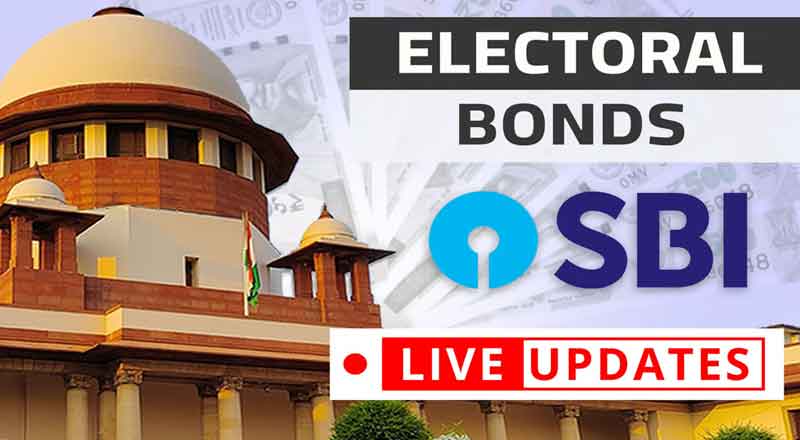- The State Bank of India (SBI) has adhered to the Supreme Court’s directive and submitted comprehensive data regarding electoral bonds to the Election Commission of India.
- The electoral bond scheme has been a subject of considerable controversy and legal scrutiny since its inception.
- Despite the Supreme Court’s clear instructions, the SBI initially sought an extension for the deadline to release the data, citing logistical challenges.
- CJI DY Chandrachud criticized the bank for what was perceived as “wilful disobedience” and issued a stern warning of potential contempt proceedings if directives were not followed promptly.
In a significant development heralding a potential shift towards greater transparency in electoral funding, the State Bank of India (SBI) has adhered to the Supreme Court’s directive and submitted comprehensive data regarding electoral bonds to the Election Commission of India (ECI). This submission comes in the wake of a stern order from the apex court, which had mandated the release of this data by March 6, as part of its landmark verdict deeming the electoral bond scheme “unconstitutional.”
The electoral bond scheme has been a subject of considerable controversy and legal scrutiny since its inception. The Supreme Court’s decision last month marked a critical juncture in the ongoing debate surrounding the scheme’s implications for citizens’ right to information and the transparency of political funding.
Despite the Supreme Court’s clear instructions, the SBI initially sought an extension for the deadline to release the data, citing logistical challenges in collating and cross-checking information stored in separate “silos” to maintain confidentiality. However, the court rejected this plea, emphasizing the importance of timely compliance with its directives. Chief Justice DY Chandrachud, leading the bench, criticized the bank for what was perceived as “wilful disobedience” and issued a stern warning of potential contempt proceedings if directives were not followed promptly.
An important aspect of the electoral bond scheme brought to light by the proceedings is the unique hidden alphanumeric number assigned to each bond. This number, as revealed in RTI responses, holds significance in tracing bonds to the political parties that redeemed them. The court sought clarification on whether the submitted data includes these unique identifiers, highlighting the scheme’s complexities and implications for transparency in political funding.
The SBI’s compliance with the court’s order marks a crucial step towards enhancing accountability and transparency in electoral funding practices. The Election Commission, entrusted with the task of collating and releasing the data to the public by 5 pm Friday, assumes a pivotal role in ensuring the accessibility of this information to citizens.
The Supreme Court’s vigilant oversight underscores the judiciary’s commitment to upholding democratic principles and safeguarding citizens’ rights. As the electoral bond saga unfolds, the spotlight remains firmly on efforts to strengthen transparency and integrity in India’s electoral processes, with the potential for broader reforms in the realm of political financing.
(With inputs from agencies)





